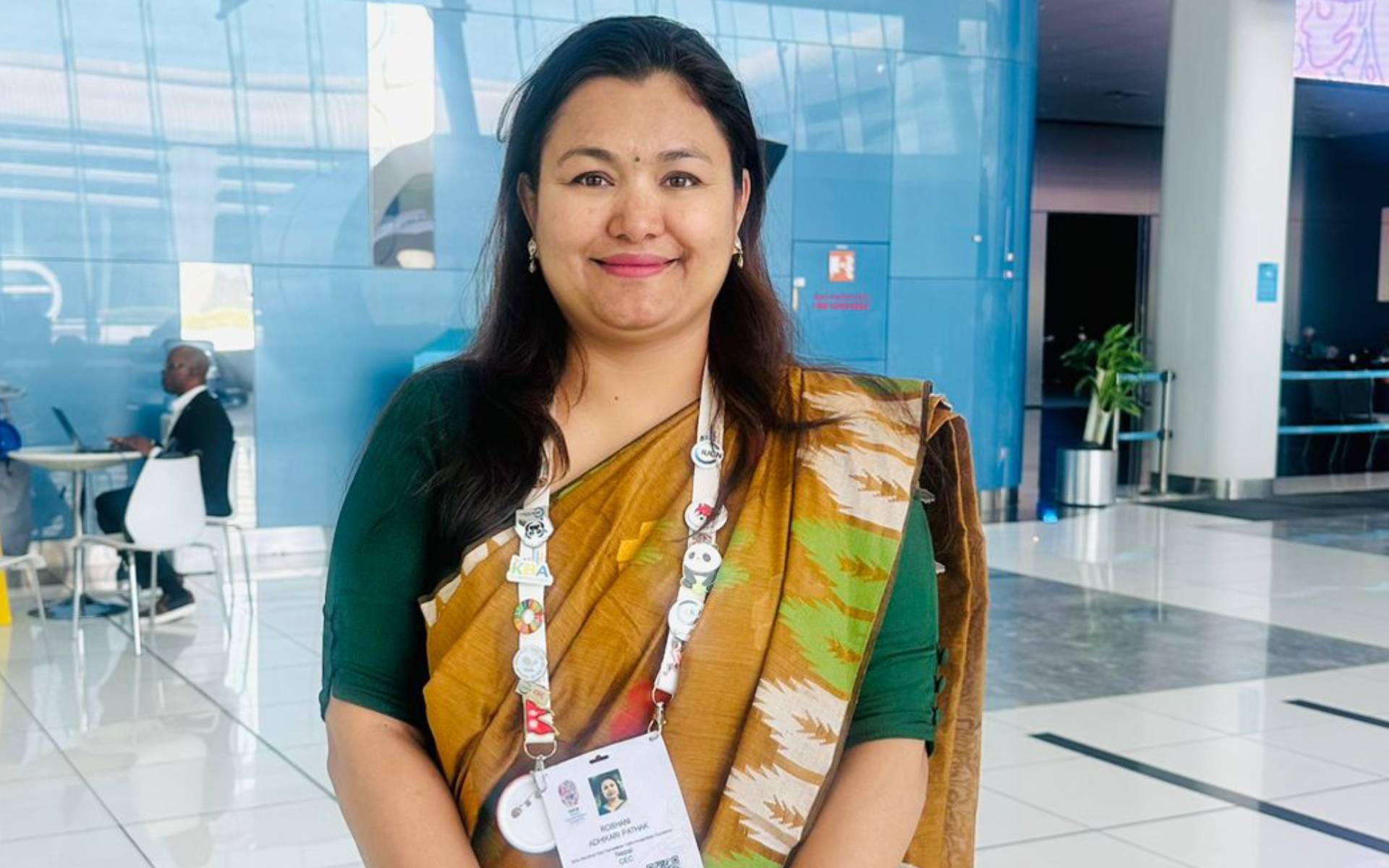
Kathmandu: Nepali candidate Roshani Adhikari Pathak has been elected as one of the Regional Councillors of the International Union for Conservation of Nature (IUCN) from the East and South Asia Region for the 2026–2029 term.
The election took place during the IUCN World Conservation Congress 2025, held in Abu Dhabi from October 9 to 15. Seven candidates from India, China, Pakistan, Malaysia, Japan, and Nepal competed for five regional seats.
Pathak, an experienced environmental journalist and conservation advocate, has over two decades of experience in biodiversity protection, climate action, and gender equality. A former President of the Nepal Forum of Environmental Journalists (NEFEJ) and Board Member of the Small Mammals Conservation and Research Foundation (SMCRF), she is known for promoting inclusive and science-based conservation.
Tej Bahadur Chhetri, Ambassador of Nepal to the United Arab Emirates, attended the opening ceremony of the Congress. The Nepali delegation included representatives from both government and non-government sectors. Bed Kumar Dhakal, Deputy Director of the Department of National Parks and Wildlife Conservation, led the delegation, while Ranjita Dahal, Deputy Chief of Mission at the Embassy of Nepal in Abu Dhabi, represented the Government of Nepal.
On the sidelines of the Congress, Nepali non-state organizations also launched the Red Panda Carpet event in collaboration with the Red Panda Network Nepal. The event was inaugurated by Ranjita Dahal. Additionally, the Embassy of Nepal organized an interaction program with the Nepali delegation on October 12, 2025.
The IUCN Members’ Assembly elected new leadership and country representatives for the 2026–2029 term, with Razan Khalifa Al Mubarak of the United Arab Emirates re-elected as IUCN President.
Held every four years, the IUCN World Conservation Congress brings together governments, civil society, indigenous groups, scientists, and the private sector to set the global agenda for conservation and sustainable development. The 2025 Congress focused on implementing the Global Biodiversity Framework, regional equity, and accelerating nature-positive action.